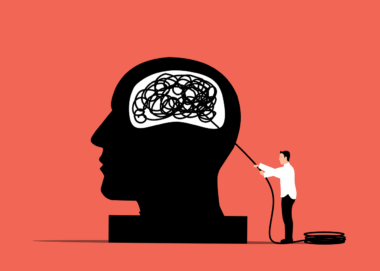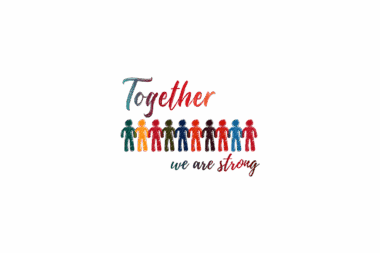The Therapeutic Effects of Team Sports on Stress and Social Integration
Team sports play a crucial role in stress management and enhancing social support for individuals facing daily pressures. Participating in such activities helps individuals channel their energy productively while competing or working together within a group. Team sports inherently encourage collaboration, which can reduce feelings of isolation often associated with stressful situations. Members build connections and friendships, all while promoting physical well-being through exercise. Engaging in a sporting environment promotes healthy communication and mutual encouragement. When participating in team sports, individuals learn how to rely on others and be reliable themselves. This reciprocal support can carry over to other aspects of life, thereby strengthening social bonds. Additionally, sports can be an effective outlet for frustrations and negative emotions, allowing participants to return home in a calmer state. Overall, team sports serve as an important therapeutic intervention, addressing both physical and mental health needs. Regular involvement can lead to improved overall well-being, both individually and as part of a community. Therefore, it is essential to recognize the integral role sports play in enhancing social integration and alleviating stress levels in a supportive setting.
Participating in team sports is often linked with various psychological benefits that contribute to stress relief. The act itself of engaging in physical activity generates endorphins, known as ‘feel-good’ hormones, which help to elevate mood and reduce stress. When players engage in team activities such as soccer or basketball, they create shared goals and experiences, fostering social connections. This bonding leads to increased trust and teamwork, which can further lower one’s stress levels. Moreover, a sense of belonging to a community is effectively built through team sports as members often share similar experiences and emotions. They provide an environment in which people are encouraged to express themselves freely and feel accepted. Having a reliable support system in times of need can significantly mitigate the impact of stressors in life. Moreover, participating in team sports can improve self-esteem through skill acquisition and personal growth, which positively influences mental health. Group discussions or reflections following games can enhance emotional expression and empathy amongst teammates. Therefore, team sports are an essential resource in the pursuit of social integration, providing both a physical and emotional outlet for stress.
The Role of Social Support in Team Sports
Social support is vital in promoting mental well-being and reducing stress levels, especially within sporting activities. Team sports serve as an ideal platform for individuals to develop meaningful relationships built on mutual respect and camaraderie. Teammates often become extended family, providing support during challenging times both on and off the field. When an athlete faces difficulties, teammates readily offer encouragement and advice, which can greatly alleviate emotional burdens. This support network can enhance feelings of safety and belonging amongst participants, reinforcing their mental fortitude. Regular interaction with teammates fosters a culture of accountability, wherein players feel responsible for one another’s success and well-being. In turn, this cultivates a strong sense of community, decreasing stress as individuals learn to rely on their peers. Furthermore, the shared experiences during practices, games, and even losses strengthen these bonds, creating reliable friendships that extend beyond sports. Ultimately, social support found in team settings is invaluable for stress management, helping individuals to cope with their challenges through collective resilience.
Engagement in team sports provides a unique setting for fostering resilience and coping mechanisms that are crucial for stress management. Athletes are often faced with challenges, both within the game and in their personal lives, requiring them to develop strategies to overcome obstacles. Team sports inherently teach players about perseverance, allowing them to grasp that setbacks are temporary and can be mitigated through teamwork. The encouragement received from teammates empowers individuals to push through adversity, leading to a greater sense of self-efficacy. As they learn to navigate stressful competitions or practices, they simultaneously learn valuable life lessons that can be applied beyond the field. The respect and understanding cultivated in team environments can also help to break down barriers related to social anxiety, releasing stress in social interactions. Additionally, positive reinforcement from peers can greatly improve attitude towards challenges. Athletes often learn to celebrate both individual and collective successes, reinforcing a healthy perspective on competition. Thus, the resilience built through the experiences gained in team sports contributes significantly to managing stress and improving overall mental health in participants.
Physical Activity as a Stress Reliever
Engaging in physical activity through team sports has been shown to alleviate stress considerably, providing both short-term and long-term benefits. Increased levels of physical exercise help in reducing cortisol, a hormone associated with stress. Regular participation in these sports fosters a routine that can contribute to overall physical fitness, which is essential in maintaining mental health. Notably, physical activity stimulates the production of neurotransmitters such as serotonin and dopamine, which influence mood and emotions positively. Team sports participants often find enjoyment in their activities, which contributes to happiness and life satisfaction levels. The opportunity for social interaction during these activities promotes a sense of community and belonging, essential for reducing feelings of loneliness and isolation. Team sports provide an environment to vent frustrations in a constructive manner, allowing participants to return home in an improved mental state. Moreover, the physical challenges encountered during gameplay encourage self-discipline, which can further decrease stress in daily routines. Thus, the benefits of engaging in team sports extend far beyond physical health to encompass crucial mental health aspects.
Moreover, team sports also offer an avenue for emotional outlets which are vital for stress management. Participants can express their joys, disappointments, and frustrations in a safe environment, free from judgment. In this context, coaches and teammates become crucial figures in supporting mental well-being, providing the necessary emotional resources to process feelings constructively. Emotional expression during sports can foster trust and deeper connections among teammates, which can further secure the social support system necessary for coping with stress. Celebrating victories and collectively handling losses create shared experiences that enhance intimacy within the group. Moreover, sport-specific rituals, such as team huddles or cheers, help reinforce group cohesion, strengthening relationships among participants. These emotional interactions can translate into improved interpersonal skills, enhancing one’s ability to navigate social situations outside the sporting events. In essence, team sports cultivate emotional intelligence and robust relationship skills essential for any individual. The synergy realized through these social connections during games cultivates resilience necessary for facing life’s various challenges, thereby making sports an effective medium for managing stress and social integration.
Conclusion
In conclusion, team sports serve a vital role in managing stress and promoting social integration among participants. The unique combination of physical activity, emotional support, and social connectedness creates an environment conducive to well-being. The collective experiences fostered in these settings enable individuals to develop essential life skills and coping mechanisms. Through teamwork, individuals learn not only how to navigate their own challenges but also how to support others in their journeys. With the recognition of these benefits, it is essential for communities and organizations to advocate for access to team sports. Creating more opportunities for individuals to participate will yield positive outcomes for mental health and strengthen social fabric. In fostering environments where team-oriented activities thrive, society contributes towards building healthier, more resilient communities. As individuals engage in team sports, they not only address their personal stressors but also cultivate friendships and support systems crucial for overall well-being. Thus, integrating team sports into daily life is an essential strategy for stress management and enhancing the quality of social connections.
It is clear that the therapeutic effects of team sports extend far beyond physical fitness. The integration of social elements contributes richly to improved mental health outcomes. As more people participate in these activities, the recognition of their significance for mental well-being becomes crucial. Indeed, team sports represent a unique synthesis of fun, fitness, and friendship, emphasizing their role in creating healthier futures. Through dedication and focus, we can harness the power of team sports to combat stress while building strong communities defined by unity and support.





